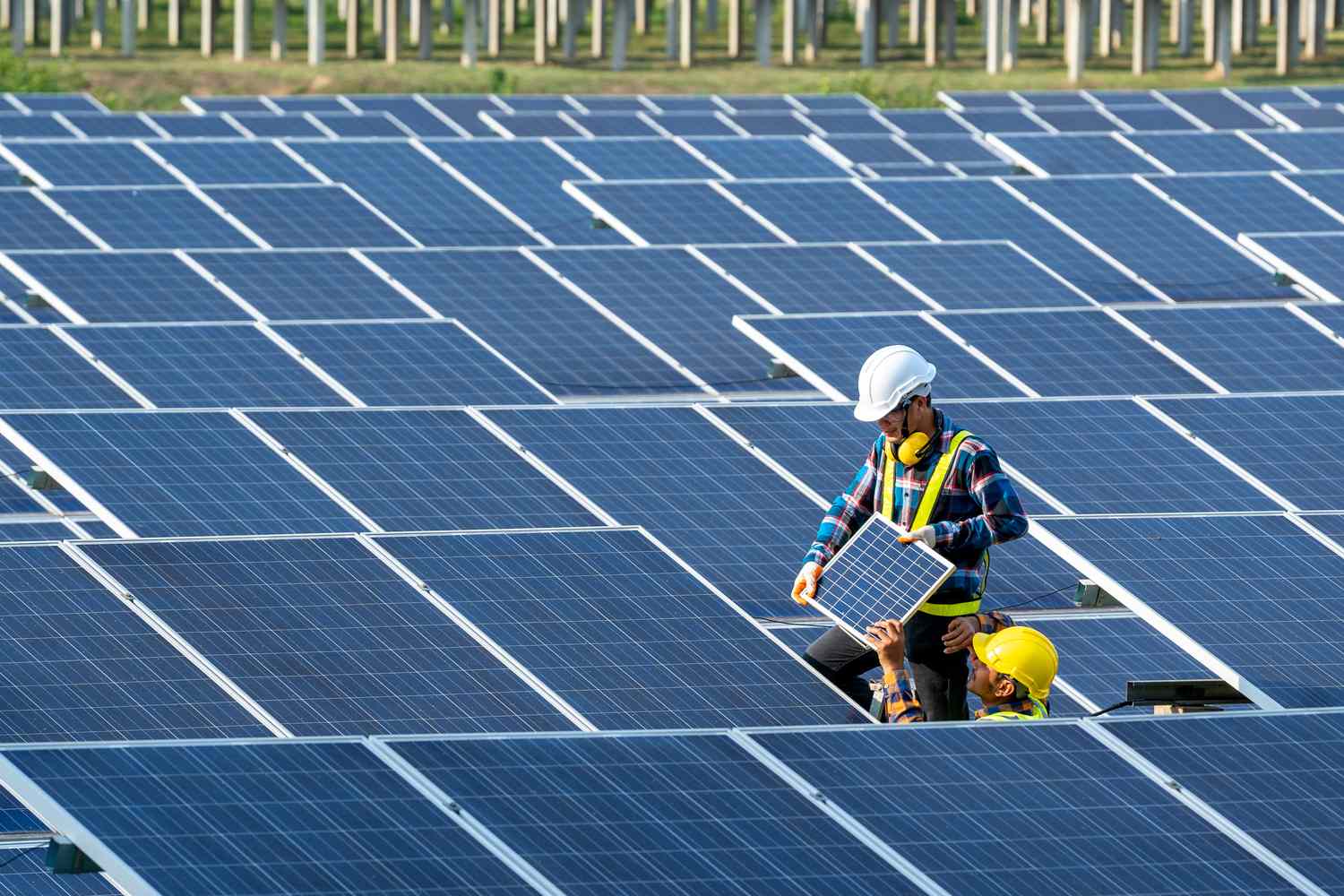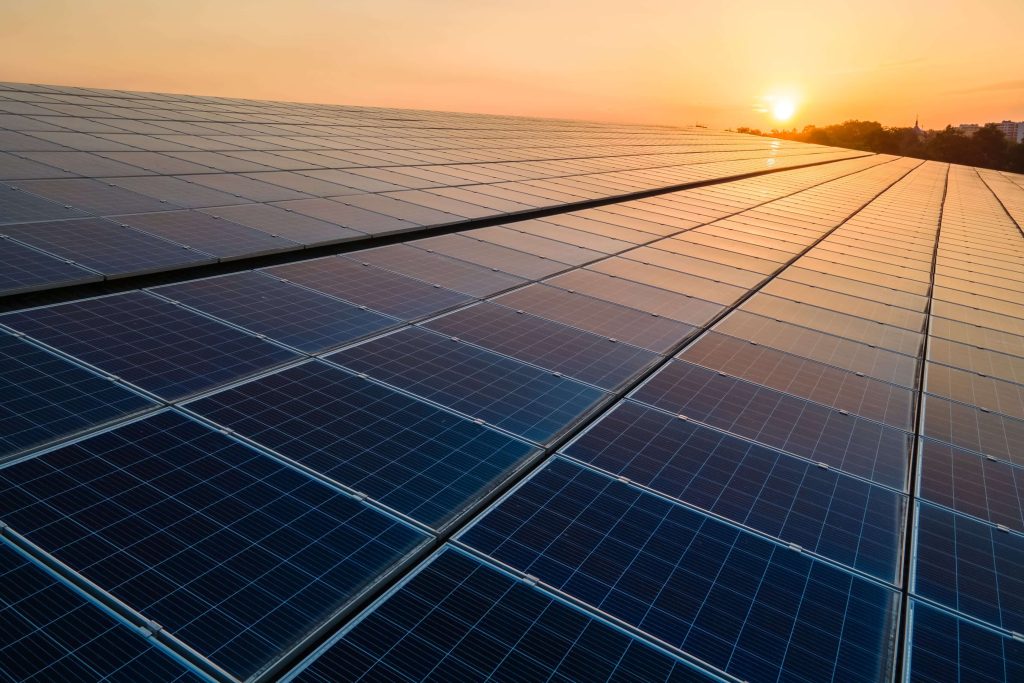
When you’re considering commercial solar panels, it’s essential to start by evaluating your energy consumption and future expansion needs. Different types of panels offer varying benefits—whether you prioritize efficiency, cost, or space. You’ll also need to weigh installation costs and explore financial options that fit your budget. But that’s just the beginning; understanding warranties and available incentives can make a significant impact on your decision. What factors should you prioritize to guarantee the best long-term return on your investment?
Assessing Energy Requirements
Before diving into commercial solar panel options, it’s essential to assess your energy requirements. Start by gathering your current energy consumption data, paying attention to peak usage times and overall patterns. For those looking to implement solar solutions in Scotland, it’s advisable to consult commercial solar panel installers Glasgow who can provide guidance tailored to your specific needs. This helps you identify how much solar energy you’ll need to meet your demands.
Keep an eye on emerging solar energy trends; they can influence your decision on system size and technology.
Consider your business scalability as well. If you plan to expand, factor in future energy needs when sizing your solar system.
Understanding Solar Panel Types
When selecting commercial solar panels, it’s crucial to understand the different types available on the market today. The main categories include monocrystalline, polycrystalline, and thin-film panels.
Monocrystalline panels are known for their high solar panel efficiency, making them a popular choice for businesses with limited roof space. Polycrystalline panels, while slightly less efficient, offer a more cost-effective solution for larger installations.
Thin-film panels are versatile and lightweight, but typically have lower efficiency rates.
Keep in mind that ongoing solar technology advancements are continually improving panel performance and efficiency. By understanding these differences, you can choose the right type of solar panel that aligns with your business’s energy needs and budget, ensuring a smart investment for the future.
Evaluating Installation Costs

Choosing the right type of solar panel is just the first step; you also need to evaluate the installation costs associated with your decision.
Start by gathering quotes from multiple vendors to get a clear picture of the price range. When comparing vendor quotes, pay attention to details like labor, equipment, and any additional fees. It’s essential to understand what’s included in each estimate to avoid surprises later on.
Additionally, explore installation financing options, which can help you manage upfront costs. Some vendors offer flexible payment plans or leasing options that might fit your budget better.
Considering Long-term Benefits
When you choose commercial solar panels, think about the long-term benefits they offer.
You’ll see significant energy cost savings over time, which can boost your bottom line.
Plus, consider the positive environmental impact and the durability of the system, as these factors play an essential role in your decision.
Energy Cost Savings
Investing in commercial solar panels can lead to significant energy cost savings over time, transforming your energy expenses into a more predictable budget line.
By conducting a thorough financial analysis, you’ll see how solar energy reduces your reliance on traditional power sources, ultimately lowering your utility bills.
Enhanced energy efficiency is another key benefit; solar panels convert sunlight into electricity, often resulting in lower energy consumption during peak hours.
As you harness this renewable resource, you’ll notice a gradual decrease in overall operational costs.
In the long run, these savings can be reinvested into your business, leading to further growth.
Embracing solar energy isn’t just an eco-friendly choice; it’s a smart financial strategy for your company’s future.
Environmental Impact Considerations
How can embracing solar energy positively affect the environment over time? By choosing commercial solar panels, you’re not just reducing energy costs; you’re also adopting sustainability practices that contribute to a healthier planet.
Solar energy considerably lowers your carbon footprint since it generates electricity without harmful emissions. As you rely more on renewable energy, you help decrease the demand for fossil fuels, further mitigating climate change.
Over the long term, this commitment enhances your business’s reputation and can inspire others in your industry to follow suit. Ultimately, the decision to invest in solar panels isn’t just about immediate savings; it’s a strategic choice that supports environmental stewardship and fosters a sustainable future for generations to come.
System Lifespan Evaluation
What factors should you consider when evaluating the lifespan of commercial solar panels? First, assess the system durability; high-quality panels typically last 25 years or more.
Look for warranties that reflect this longevity, as they indicate manufacturer confidence. Next, consider maintenance requirements. While solar panels are generally low-maintenance, some models might need more attention than others.
Regular inspections can help identify any potential issues early, ensuring ideal performance over time. Also, examine the installation quality, as poor installation can greatly affect lifespan.
Analyzing Warranty and Support
When selecting commercial solar panels, understanding warranty and support is vital for guaranteeing long-term satisfaction and reliability. You should carefully examine the warranty coverage offered by manufacturers, which typically includes performance and equipment guarantees.
A strong warranty can protect your investment and provide peace of mind, particularly if issues arise down the line.
Don’t overlook the importance of technical support as well. Reliable access to knowledgeable support staff can make a significant difference when you face installation challenges or system maintenance needs.
Confirm that the company you choose offers prompt and effective assistance, as this will help you maximize your solar system’s performance and address any concerns quickly.
Ultimately, both warranty and support are essential to your solar investment’s success.
Researching Incentives and Rebates
Exploring available incentives and rebates can greatly reduce your overall investment in commercial solar panels. Start by checking federal incentives, which often include tax credits that can markedly lower your costs.
Don’t overlook state rebates and local programs, as they can provide additional financial support tailored to your region. Many utility companies also offer incentives for businesses that invest in energy efficiency, which can further enhance your savings.
Look into various financing options that may be available, including low-interest loans or lease agreements. Additionally, investigate grant opportunities that can help fund your solar project.






